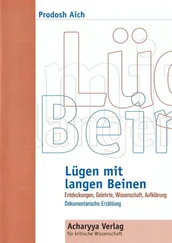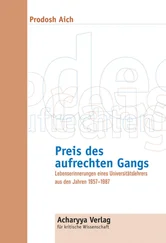His sufferings due to poverty and the cute story of his “ first love, Sanskrit and the rest ” (p . 109-111) is catching us up again. Now we read on page 112 in the “ My Autobiography ”. Highlights by us:
“In spite of the res angusta domi, I enjoyed my student-life thoroughly, while my home was made very agreeable by my mother and sister. My mother was full of resource, and she was wise enough not to interfere with my freedom. My sister, who was about two year older than myself, was most kind-hearted and devoted both to me and to our mother.”
We have read these lines more than once to get the basic trait of the character of Friedrich Maximilianas mediated to us by Max Müllerand of course by his educational progress. He is pathologically egoistic. He enjoys his student-life thoroughly . He praises his mother who was full of resource, and she was wise enough not to interfere with his freedom . Does he, at least, report to the mother about the progress in his studies?
Then we read on page 113 in the autobiography: “ Of society, in the ordinary sense of the word, I saw hardly anything. I am afraid I was rather a bear, and declined even to invest in evening dress. I joined a student club which formed part of the Burschenschaft , but which in order to escape prosecution adopted the title of Gemeinschaft . I went there in the evening to drink beer and smoke, and I made some delightful acquaintances and friendships. ” Later we shall know that he smokes cigars only.
Friedrich Maximilian Müllerhas obviously raised himself to a master of suppressing things, if we trust Max Müller’s writings on him. We recall his 15 thalers scholarship for poor students and the small pension of his mother Adelheid. We take just one more example to comprehend how light heartedly he shows off. Members of a “Burschenschaft” wear ribbons to show their identity in public. Friedrich Maximilian Mülleris once caught by the police wearing Ribbon. We read (p. 115-116, “My Autobiography” ):
“I myself got a taste of prison life for the offence of wearing the ribbon of a club which the police regarded with disfavour. I cannot say that either the disagree or the discomfort of my two day’s durance vile weighed much with me, as my friends were allowed free access to me, and came and drank beer and smoked cigars in my cell – of course at my expense – but what I dreaded was the loss of my stipendium or scholarship, which alone enabled me to continue my studies at Leipzig, and which as a rule, was forfeited for political offences. On my release from prison I went to the Rector of the University and explained to him the circumstances of the case – how I had been arrested simply for membership of a suspected club, I assured him that I was innocent of any political propaganda, and the loss of my stipendium would entail my leaving the University.”
Friedrich Maximilian Müllerlives his student life, as it is then common at Leipzig. Generally, students then were scions of wealthy people. He has joined a “Burschenschaft”. Members of a “Burschenschaft” learn also duelling. We read on page 116, Autobiography:
“Duelling was then, as it is now, a favourite pastime among students; and though not by nature a brawler, I find that my student days at Leipzig I fought three duels, of two of which I carry the marks to the present day.”
Scar marks on the face are prestigious visible signs of academicians in Germany even today. In the fifth semester, SS 1843, Friedrich Maximilian Müllerreduces the numbers of lectures attended to nine. What does it indicate? Resignations? These lectures are:
1 Greek and Latin Seminary Hermann & Klotze
2 History of Greeks and Romans Wachsmuth
3 History of Civilization Wachsmuth
4 History after the Fifteenth Century Flathe
5 History of Ancient Philosophy Niedner
6 Philosophical Society Weisse
7 Philosophical Society Drobish
8 Soma-Deva Hermann Brockhaus
9 Hitopadesa Hermann Brockhaus
“ Soma-Deva ” is the name of a writer who has retold Indian legends, fairy tales and folk tales originally handed down in the Sanskrit language. “ Hitopadesha ” is a collection of episodic pieces in the Sanskrit language written in the early centuries. Translations in Arabic, Persian and English are available since the 16 thcentury. We are unable to comprehend how university lectures on publications like these can teach a language like Sanskrit.
For all practical purposes, Friedrich Maximilian Müllerhas left Leipzig University before the winter term 1843/44 begins. He wished initially to attend only three lectures. We mention them.
1 Greek and Latin Seminary Hermann & Klotze
2 Elementa Persica Fleischer
3 Rig-veda Hermann Brockhaus
Obviously, Friedrich Maximilian Mülleris still indecisive. He tends to learn Persian also. Keeping the “cute story” in mind ( “first love, Sanskrit and the rest” ) we are informed by Max Müller. We read in the autobiography, pages 122 ff:
“Here my Collegien Buch breaks off, the fact being that I was preparing to go to Berlin to hear the lectures of Bopp and Schelling.
It will be clear from the above list (he refers to the list of all lectures he has attended at Leipzig University) that I certainly attempted too much. I ought either to have devoted all my time to classical studies exclusively, or carried on my philosophical studies more systematically. I confess that, delighted as I was with Gottfried Hermann and Haupt as my guides and teachers in classics, I found little that could rouse my enthusiasm for Greek and Latin literature, and I always required a dose of that to make me work hard. Everything seemed to me to have been done, and there was no virgin soil left to the plough, no ruins on which to try one’s own spade. Hermann and Haupt gave me work to do, but it was all in the critical line – the genealogical relation of various MSS, or, again the peculiarities of certain poets, ... ”
A lengthy lecture follows on classical languages, on literature, on philosophers and on philosophy with lots of platitudes and clichés up to the end of the page 141 ff in the autobiography. Thereafter we read:
“For a time I thought of becoming a philosopher, and that sounded so grand that the idea of preparing for a mere schoolmaster, teaching Greek and Latin, seemed to me more and more too narrow a sphere. Soon, however, while dreaming of a chair of philosophy at a German University, I began to feel that I must know something special, something that no other philosopher knew, and that induced me to learn Sanskrit, Arabic and Persian. (...) It was a fortunate coincidence that at that very time, in the winter of 1841, a new professorship was founded at Leipzig and given to Professor Brockhaus. Uncertain as I was about the course I had to follow in my studies, I determined to see what there was to be learnt in Sanskrit. There was a charm in the unknown, and, I must confess, a charm also in studying something which my friends and fellow students did not know.”
It does not sound like a “love for Sanskrit” . Does it? We are again caught up with the cute story of Friedrich Maximilian Müller’s “first love, Sanskrit and the rest” (p.109-111). Anyway, one can read lectures delivered by Max Mülleron languages, on Sanskrit, on etymology of words, on ancient gods, on Aryans, and what not. Obviously Friedrich Maximilian Müllercould have known nothing of all these from Hermann Brockhaus. We shall have to know how Hermann Brockhaushad learnt his Sanskrit and where and from whom and for how long.
Читать дальше












